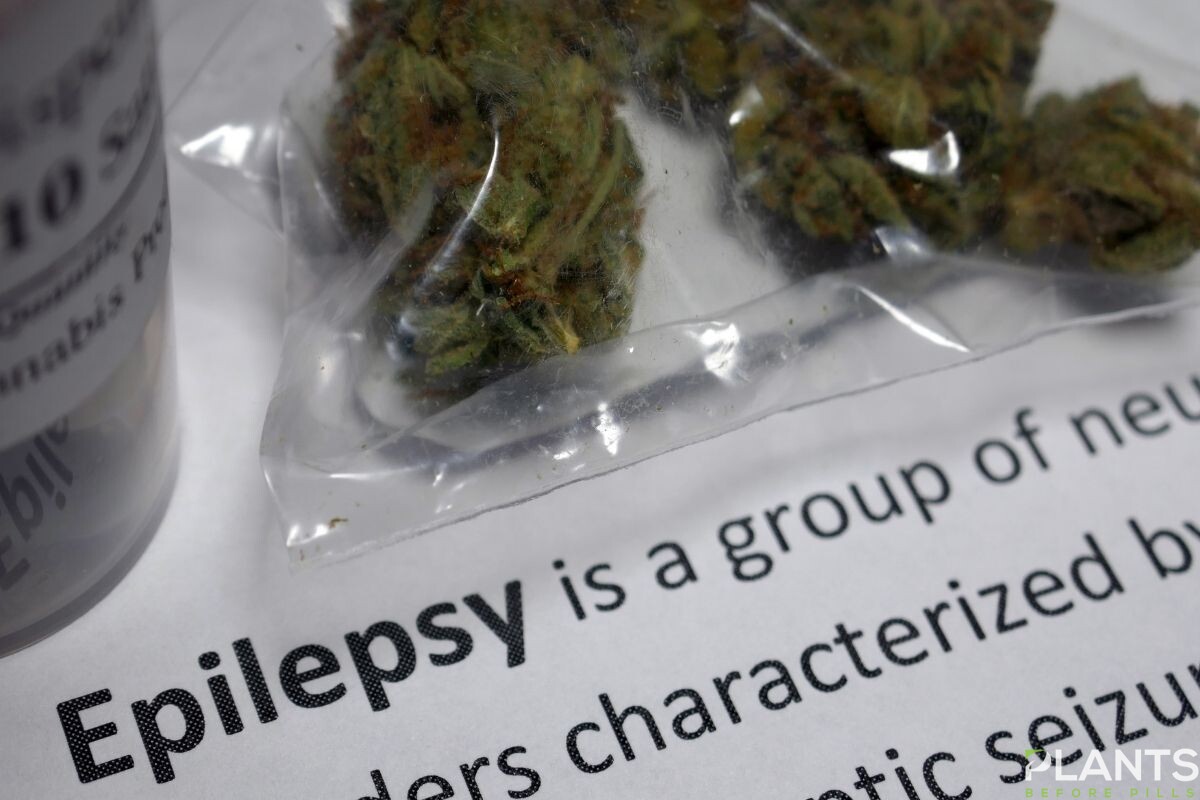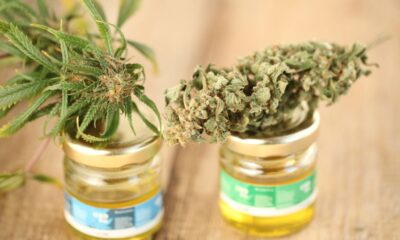Benefits of Medical Marijuana
The Role of Endocannabinoid System and CBD to Our Health

At school, our teachers taught that there are 11 organ systems in the body such as circulatory, respiratory, urinary, integumentary (skin), reproductive, skeletal, digestive, endocrine, muscular, nervous, and lymphatic systems. All of them play a significant role in our survival and quality of living. But there is one organ system that is getting prominence these days following the legalization of medical cannabis and CBD: the endocannabinoid system.
What is the Endocannabinoid System?
The knowledge about the endocannabinoid system is often limited to researchers or doctors working with medical marijuana. Scientists have discovered this group of organs while they were finding out how cannabis is doing wonders in the body. Since ancient times, there have been medical records describing the various benefits of marijuana to our ancestors’ health.
The curiosity about the plant’s incredible healing powers has been revived in the modern era, mainly because of the discovery of receptors spread throughout all parts in the body: in the brain, organs, glands, connective tissues, and immune cells. In 1990s Dr. L.A. Matsuda discovered the structure of the cannabinoid receptor, CB-1. During that time, scientists were attempting to understand how THC, the substance in marijuana primarily responsible for intoxication, affected the body. What they discovered was an astonishing network of cannabinoid receptors (CBr) found in cells of parts of the nervous system.
After the discovery of CB-1, they later identified other cannabinoid receptor types, including CB-2, located primarily in the immune system, the gastrointestinal tract, and many of the other major organs in the body. Later on, they found Anandamide, a cannabinoid-like chemical produced by the body Anandamide communicates with both the CB-1 and CB-2 receptors, regulating the immune system and other bodily functions. More The endocannabinoids and its receptor are later collectively named the endocannabinoid system (ECS).
Many medical experts consider the ECS as the most important physiologic system responsible for establishing and maintaining our health. And why not? It is a system of physiology found in the body of every person that always keeps the internal balance at the cellular level. It is mainly responsible for regulating homeostasis or a stable internal environment despite variations and rapid changes outside our bodies.
The body produces endocannabinoids nearly all the time to achieve homeostasis, especially when it senses that the body is out of balance. The disruption in the internal balance can come from stress, invasion of bacteria or any other outside factors.
Cannabis, Endocannabinoid System, CBD
 But as we grow old or when the ECS fails to function well due to diseases, disorders and other reasons, our body needs help from the outside to maintain its function at the optimal level. Here is where medical cannabis gives out its contribution to modern medicine. CBD and other compounds derived from the plant such as CBC and THC has the unique capacity to interact with the ECS. These cannabinoids mimic the functions of endocannabinoids.
But as we grow old or when the ECS fails to function well due to diseases, disorders and other reasons, our body needs help from the outside to maintain its function at the optimal level. Here is where medical cannabis gives out its contribution to modern medicine. CBD and other compounds derived from the plant such as CBC and THC has the unique capacity to interact with the ECS. These cannabinoids mimic the functions of endocannabinoids.
Researchers have found many benefits of taking medical cannabis to a person’s health. No less than the WHO has acknowledged the number of benefits medical marijuana can give to our health and wellness, including treatment to chronic pain, Alzheimer’s disease, anxiety, depression, some types of cancer, and many health conditions. Aside from enhancing our health, marijuana’s communication with the ECS can also help in carrying out our tasks better.
Future of Cannabis and ECS
But while scientists already have a clear idea of the effects of cannabis in our body, they still need more research on the nature and functionality of endocannabinoids and ECS. Likewise, they need to study further the effects of taking cannabinoids to supplement the body’s production of endocannabinoids to find out more medical benefits of this wonder plant in the future.
Medical Disclaimer:
The information provided in these blog posts is intended for general informational and educational purposes only. It is not a substitute for professional medical advice, diagnosis, or treatment. Always seek the advice of your physician or other qualified healthcare provider with any questions you may have regarding a medical condition. The use of any information provided in these blog posts is solely at your own risk. The authors and the website do not recommend or endorse any specific products, treatments, or procedures mentioned. Reliance on any information in these blog posts is solely at your own discretion.
Benefits of Medical Marijuana
Can CBD Help with Tinnitus?

High-pitched tones and ringing in your ears might already be a normal phenomenon to you, but this condition called tinnitus is actually a type of condition that many other people deal with, especially as they grow older over time.
People have heard that cannabidiol has been great for people dealing with different types of health conditions, from chronic pain, anxiety, insomnia and many others. With its prominence in the field, it comes as no surprise that there are many people who believe that this can help deal with tinnitus as well.
This article will let you in on what CBD products can do to help with tinnitus or if it can even help at all. Read on to find out.
What is Tinnitus?

Tinnitus is commonly described as a term when you hear ringing in your ears. Apart from ringing, you can also encounter high-pitched sounds, a buzzing or hissing sound, whistling, and other similar sounds. This particular condition can actually disrupt or interfere with how you normally hear or perceive sounds.
Tinnitus is often referred to as a symptom primarily because it points to other underlying conditions. For example, this can be caused by an ear injury, hearing loss due to age, high or low blood pressure, wax buildup in the ear canal, and problems relating to the neck, jaw, or teeth, to name a few.
Those who suffer from this condition for prolonged periods of time tend to develop stress, anxiety, and even depression.
This condition is treated and managed with the help of hearing aids, sound generators, environmental enrichment devices such as CD and mp3 recordings, and relaxation techniques.
How CBD Can Ease This Condition

Individuals have their own endocannabinoid system (ECS). This is comprised of the naturally-occurring cannabinoids in the body, enzymes, as well as cannabinoid receptors. The main goal of the ECS is to provide balance and regulation to our different bodily functions.
The cannabinoid receptors in our body, namely CB1 and CB2 receptors respond to cannabinoids we take, such as that of CBD.
Help Calm Nerves
CBD oil and other cannabidiol products have the capacity to help calm the nerves and the body. With cannabinoids being found to be of great help in neural processing within the auditory system, using CBD products can slow down these neural impulses. In turn, tinnitus, and the ringing it brings in your ears, can be toned down.
Potential to Reduce Hearing Loss
A study conducted in 2020 shows a positive disposition towards the use of cannabidiol and treating hearing conditions such as tinnitus. Since CBD is known to have anti-inflammatory and soothing effects, this can reportedly aid with the condition and reduce the chances of hearing loss.
Address Side Effects That Come with Tinnitus
As mentioned, people dealing with tinnitus, especially those who have dealt with this condition for a long time now, tend to develop stress, depression, and anxiety. CBD products are effective in reducing these feelings by interacting with the serotonin receptors in the brain.
The Bottom Line
There is still quite a way to go in studying the effects of CBD on tinnitus. However, with the preliminary studies conducted, it shows that cannabidiol is promising with its ability to manage symptoms of this condition.
Medical Disclaimer:
The information provided in these blog posts is intended for general informational and educational purposes only. It is not a substitute for professional medical advice, diagnosis, or treatment. Always seek the advice of your physician or other qualified healthcare provider with any questions you may have regarding a medical condition. The use of any information provided in these blog posts is solely at your own risk. The authors and the website do not recommend or endorse any specific products, treatments, or procedures mentioned. Reliance on any information in these blog posts is solely at your own discretion.
Benefits of Medical Marijuana
Best CBD for Sleep [VIDEO]

In recent years, CBD has become a buzzwordd for its ability to reduce anxiety and treat poor slumber. However, when it comes to addressing sleep problems, not all CBD is created equal. If you’re dealing with insomnia or any kind of bedtime issues, then find out which type of CBD should you use.
Medical Disclaimer:
The information provided in these blog posts is intended for general informational and educational purposes only. It is not a substitute for professional medical advice, diagnosis, or treatment. Always seek the advice of your physician or other qualified healthcare provider with any questions you may have regarding a medical condition. The use of any information provided in these blog posts is solely at your own risk. The authors and the website do not recommend or endorse any specific products, treatments, or procedures mentioned. Reliance on any information in these blog posts is solely at your own discretion.
Benefits of Medical Marijuana
How to Take Epidiolex and What Are Its Side Effects

Epidiolex and Its Effectiveness

How to Use Epidiolex
As instructed by your doctor, take Epidiolex medicine twice a day by mouth. With or without meals, this drug should be taken in the same manner for each and every dose. Choosing one method and sticking to it is essential. How much medicine you take is determined by your health status and any other drugs you may be taking. If you’re taking any kind of medication, whether prescription or non-prescription, inform your doctor and pharmacist about it. Your doctor may instruct you to begin taking this medicine at a lower dosage and gradually raise your dosage in order to minimize the chance of adverse effects. Your doctor may also gradually lower your dosage if you are told to stop using this medicine. Observe your doctor’s advice to the letter. Using a specific spoon or measuring equipment, carefully measure the dosage. Avoid using a household spoon since you may not receive the right dosage.Side Effects
Sleepiness, exhaustion, difficulty falling asleep or staying asleep, a lack of energy and a decrease in appetite, weight loss, or diarrhea are all possibilities. It’s important to notify your doctor or pharmacist if any of these side effects continue or worsen. Remember that your doctor ordered this medicine because he or she believes that the benefits outweigh the risks. The majority of people who use this medicine do not have any substantial adverse effects. Signs of liver damage should be reported to your doctor as soon as possible. Anti-seizure medicines may cause depression, suicidal thoughts, or other mental/mood issues in a tiny percentage of people. The risk of a severe allergic response to this medication is quite low. However, if you detect any signs of a severe allergic response, such as a rash, itching, swelling, severe dizziness, or difficulty breathing, you should seek immediate medical attention.How Much Is Epidiolex?
The price of Epidiolex might vary, just like the price of any other drug. Epidiolex may only be available at a specialized pharmacy. Specialty drugs are permitted to be sold at this pharmacy. Patients may need assistance from a healthcare professional in order to properly and efficiently utilize these medications. Your insurance provider may demand that you obtain prior authorization before covering Epidiolex. As a result, before your insurance company will pay a prescription medication, your doctor and insurance company must talk about it. Whether or not a medicine is covered by insurance depends on the outcome of the prior authorization request. Your insurance provider can help you determine whether or not you need prior permission for Epidiolex.Conclusion
Though Epidiolex is an FDA-approved drug, there are no guaranteed similar good effects on every person. So if you ever encountered side effects that are listed above or anything that makes you feel uncomfortable after taking Epidiolex, it is recommended to consult your doctor immediately.Medical Disclaimer:
The information provided in these blog posts is intended for general informational and educational purposes only. It is not a substitute for professional medical advice, diagnosis, or treatment. Always seek the advice of your physician or other qualified healthcare provider with any questions you may have regarding a medical condition. The use of any information provided in these blog posts is solely at your own risk. The authors and the website do not recommend or endorse any specific products, treatments, or procedures mentioned. Reliance on any information in these blog posts is solely at your own discretion.
-

 Cannabis Recipes5 years ago
Cannabis Recipes5 years agoCBD-Infused Kahlua Cheesecake Tart With Scientist-Turned-Chef Chris Yang | Like A Chef [VIDEO]
-

 Cannabis Business2 years ago
Cannabis Business2 years agoRAW Paper’s Announces Details On Their “Golden Ticket” Sweepstakes
-

 CBD Plants & Strains5 years ago
CBD Plants & Strains5 years agoCan you smoke CBD hemp flower?
-

 Cannabis 1014 years ago
Cannabis 1014 years agoHow to Choose the Best Dispensary in Scottsdale AZ
-

 Cannabis Lifestyle5 years ago
Cannabis Lifestyle5 years agoWhat To Look For When Buying High-Quality CBD Products
-

 Cannabis Blogs3 years ago
Cannabis Blogs3 years agoTop CBD Trends in 2022
-

 Cannabis Blogs4 years ago
Cannabis Blogs4 years agoCBD and Coffee
-

 Cannabis Recipes4 years ago
Cannabis Recipes4 years agoCbd & strawberry vinaigrette




















































